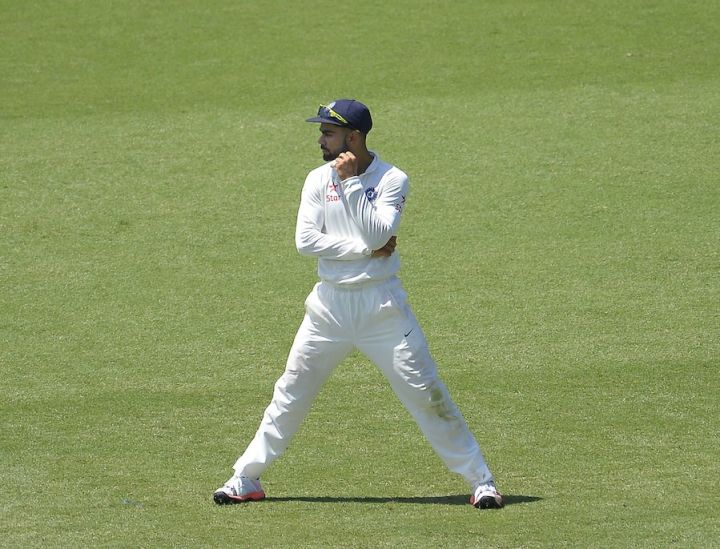India's captaincy is impeding their Test progress
You can't blame their bowlers entirely for not taking 20 wickets in each Test when Dhoni and Kohli's field settings and tactics have been pretty dismal

The general consensus is this Indian Test side will be challenging the best in the world in 12 months' time when the players gain a bit more experience. A number of things will need to change if that is to become reality.
India is far ahead of all cricket nations in producing skilful, technically solid young batsmen. They are the envy of even the stronger countries like Australia and South Africa. However, when it comes to captaincy, bowling and close catching, India have a lot of ground to make up.
Part of the prediction regarding India's future is based on the number of bowlers who can deliver at more than 140kph. That's the easiest part - the difficult art is to deliver in such a way that there is the best chance of dismissing top-class batsmen. At the moment there's far too much inconsistency in line and length to regularly trouble the best batsmen. Pace is good when it's delivered accurately, but when it arrives in a haphazard fashion it offers batsmen easy scoring opportunities and, consequently, there is less likelihood of a wicket. This Indian side has conceded in excess of 500 runs in each Australian first innings, which is not a recipe for winning Test matches.
While this might sound like the fault of the bowlers, that is far from the truth. The two captains - MS Dhoni and Virat Kohli - have contributed to this dismal showing.
From the insane tactic of consistently operating from round the wicket to the left-hand batsmen in Adelaide, to changing bowlers after a one-over spell at the SCG, there has been some strange Indian captaincy in this series. Too often Kohli has displayed an impatience that translates into bowlers becoming frantic to take wickets, and that can end up a costly exercise. Kohli is not short of ideas, which is good for a captain, but he needs to tailor them to produce consistently accurate bowling that relies more on patience than nuclear-blast type ambushes.
Dhoni had a tendency to run out of ideas quickly when captaining Tests away from India. His plan B is based on bouncing batsmen out with two fielders in the deep on the leg side. Dismissals are rarely achieved with this tactic, which is often an expensive one. It also isn't conducive to grooming consistently accurate bowlers.
Both captains tend to place defensive fields too early in a Test, which rely on the batsman committing hara-kiri. The really good players don't succumb. Regularly in this series, Steven Smith and David Warner have gratefully accepted the gifts on offer and predictably accumulated huge aggregates.
It seems strange that Indian captains have difficulty finding ways to dismiss good batsmen on true surfaces. The conditions they often experience at home should be perfect training for tactics devised to suit accurate bowling to strategically set fields. To succeed at Test level bowlers need to maintain accuracy under attack from good batsmen. R Ashwin is the lone bowler in the Indian side who has learned that lesson, and the faster bowlers need to follow his example.
Ashwin has performed well but he hasn't been helped by his close fielders, who lack the anticipation you would expect from Indian close catchers. Sure, India had some great spinners in the past but they were complemented by great close catching from the likes of Eknath Solkar and company. "Ekky" would have been appalled at the lack of anticipation being shown by the close fielders when Ashwin is bowling.
These frailties need to be addressed before India can expect to challenge for the top ranking in Test cricket. The blame for some of these failings will be placed on the amount of short-form cricket that is played in India and by Indian cricketers. However, this argument doesn't hold up when you consider the fact that short-form cricket hasn't adversely affected the standard of their batting. India have shown again and again in Australia that you can't win Test matches by good batting alone.
Former Australia captain Ian Chappell is now a cricket commentator for Channel 9, and a columnist
Read in App
Elevate your reading experience on ESPNcricinfo App.